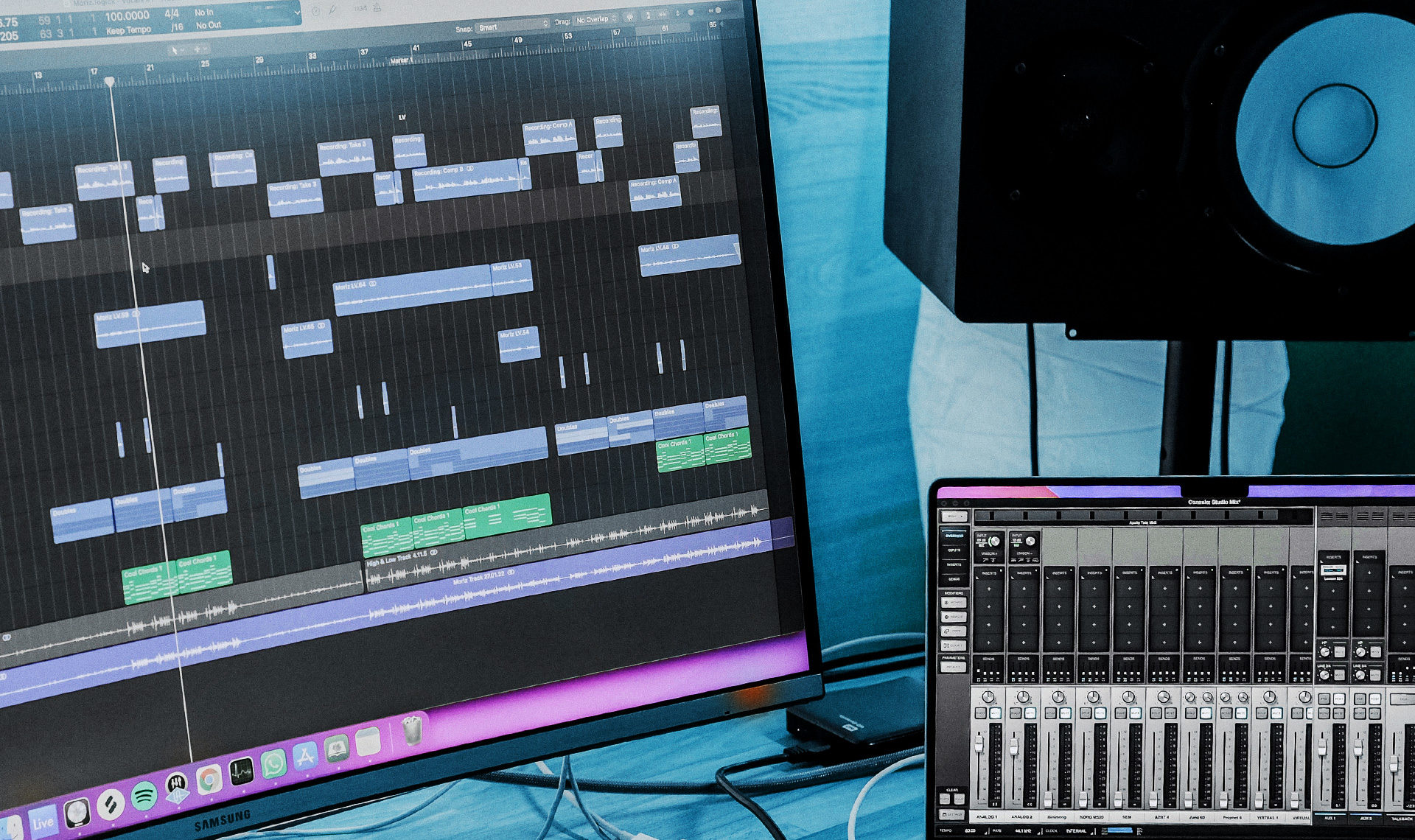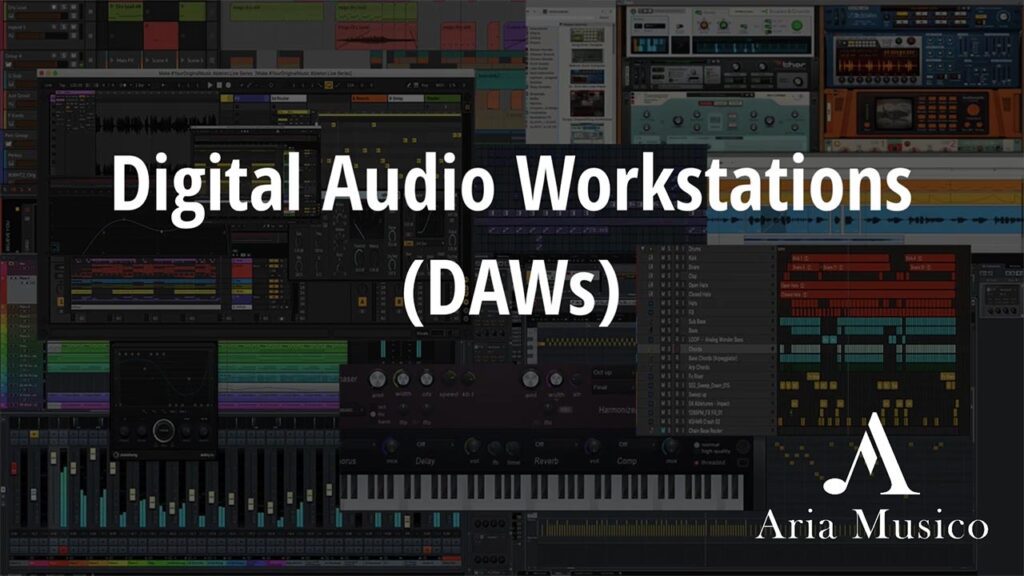Unlock Your Musical Potential: A Digital Audio Workstation Guide for Music Volunteers
Finding the right tools can be a game-changer, especially for music volunteers eager to contribute their talents. This Digital Audio Workstation Guide for Music Volunteers from theautonomics.com is designed to provide practical advice and assistance, helping you navigate the world of DAWs and maximize your creative output. Whether you’re a seasoned musician or just starting, this guide will empower you to produce high-quality audio, regardless of your experience level. This Digital Audio Workstation Guide for Music Volunteers will cover everything from choosing the right software to mastering your final mix.
Explore
- 1 Choosing Your Digital Audio Workstation
- 2 Getting Started with Your Digital Audio Workstation
- 3 Advanced Techniques for Music Volunteers
- 4 Troubleshooting Common Issues
- 5 Expanding Your Skills: Resources for Music Volunteers
- 6 The Power of a Digital Audio Workstation Guide for Music Volunteers
- 7 Final Thoughts: Embrace the Journey
Choosing Your Digital Audio Workstation
Selecting the appropriate Digital Audio Workstation Guide for Music Volunteers is crucial. The best DAW for you will depend on several factors, including your budget, technical skills, and the type of music you’re creating.
Free Digital Audio Workstations
Many excellent free DAWs are available, offering a fantastic starting point for music volunteers with limited budgets. These often include a comprehensive set of features suitable for various projects. A Digital Audio Workstation Guide for Music Volunteers should always consider these options first. Researching the capabilities and limitations of each free DAW is essential before committing. Remember, a Digital Audio Workstation Guide for Music Volunteers needs to focus on functionality, not just flashy features.
Paid Digital Audio Workstations
Paid DAWs usually offer more advanced features, greater stability, and often better support. While they come with a price tag, the investment can be worthwhile for music volunteers working on complex projects or requiring professional-grade tools. A Digital Audio Workstation Guide for Music Volunteers focusing on paid options should highlight the value proposition and return on investment.
DAW Features to Consider
A comprehensive Digital Audio Workstation Guide for Music Volunteers should emphasize the importance of considering specific features. These include:
- Intuitive Interface: Ease of use is paramount, especially for beginners.
- MIDI Editing Capabilities: Essential for composing and arranging music.
- Virtual Instruments: Software synthesizers and samplers can expand your sonic palette.
- Effects Processing: Essential for shaping and enhancing your sound.
- Mixing and Mastering Tools: Crucial for creating a polished final product.
- Plugin Support: The ability to expand functionality with third-party plugins.


A Digital Audio Workstation Guide for Music Volunteers should help you assess your needs and choose a DAW that aligns with them.
Getting Started with Your Digital Audio Workstation
Once you’ve chosen your DAW, it’s time to get started. This Digital Audio Workstation Guide for Music Volunteers will walk you through the initial setup and basic workflow.

Setting Up Your Workspace
Creating an efficient and comfortable workspace is crucial for productivity. Ensure you have adequate desk space, comfortable seating, and well-organized cables. A Digital Audio Workstation Guide for Music Volunteers should emphasize the importance of ergonomics to prevent fatigue and strain.
Understanding the Interface
Familiarize yourself with your DAW’s interface. This usually involves learning the arrangement of menus, toolbars, and windows. Many DAWs offer comprehensive tutorials and online resources. A Digital Audio Workstation Guide for Music Volunteers should direct you to these resources.
Basic Workflow: Recording, Editing, and Mixing
The core workflow of most DAWs involves recording audio, editing it, and mixing it. A Digital Audio Workstation Guide for Music Volunteers should explain these steps in a clear and concise manner. Start with simple projects to build confidence and gradually increase complexity.
Working with MIDI
If you’re composing music, you’ll need to learn how to work with MIDI. This involves using a MIDI keyboard or other controller to input notes and other musical data. A Digital Audio Workstation Guide for Music Volunteers should explain the basics of MIDI and how to use it effectively.
Advanced Techniques for Music Volunteers
This section of the Digital Audio Workstation Guide for Music Volunteers explores more advanced techniques that can help you produce professional-sounding music.
Mixing and Mastering Your Tracks
Mixing and mastering are crucial for creating a polished final product. A Digital Audio Workstation Guide for Music Volunteers should cover the fundamentals of these processes, including equalization, compression, and reverb. Consider using reference tracks to compare your mixes to professional recordings.
Using Virtual Instruments and Effects
Experiment with virtual instruments and effects to expand your creative possibilities. A Digital Audio Workstation Guide for Music Volunteers should encourage exploration and experimentation. Don’t be afraid to try new things and see what sounds good.
Collaboration and Sharing Your Music
Many DAWs facilitate collaboration and sharing your music online. A Digital Audio Workstation Guide for Music Volunteers should explain these features. This is particularly important for music volunteers working on group projects. Learn how to export your tracks in various formats and share them with collaborators.
Troubleshooting Common Issues
This Digital Audio Workstation Guide for Music Volunteers anticipates and addresses common problems encountered by users.
Latency Issues
Latency, or delay, in audio playback can be frustrating. A Digital Audio Workstation Guide for Music Volunteers should explain how to minimize latency by adjusting buffer settings and other parameters.
Plugin Conflicts
Conflicts between different plugins can cause crashes or unexpected behavior. A Digital Audio Workstation Guide for Music Volunteers should advise on managing plugins and resolving conflicts.
File Management
Organizing your projects and files is essential for maintaining a clean and efficient workflow. A Digital Audio Workstation Guide for Music Volunteers should offer tips for effective file management.
Technical Support
Most DAWs offer technical support resources, including online documentation, forums, and email support. A Digital Audio Workstation Guide for Music Volunteers should direct you to these resources. Don’t hesitate to seek help when you need it. Remember, a Digital Audio Workstation Guide for Music Volunteers is your resource for navigating any challenges.
Expanding Your Skills: Resources for Music Volunteers
Continuous learning is essential for any musician. This Digital Audio Workstation Guide for Music Volunteers points you toward valuable learning opportunities.
Online Tutorials and Courses
Numerous online tutorials and courses are available, covering a wide range of topics related to DAWs and music production. A Digital Audio Workstation Guide for Music Volunteers should recommend reputable sources.
Community Forums and Support Groups
Connecting with other music volunteers and professionals can be invaluable. A Digital Audio Workstation Guide for Music Volunteers should encourage participation in online forums and support groups. Sharing experiences and learning from others can accelerate your progress.
Books and Workshops
Books and workshops offer in-depth instruction on various aspects of music production. A Digital Audio Workstation Guide for Music Volunteers should suggest relevant resources based on your learning style and interests.
The Power of a Digital Audio Workstation Guide for Music Volunteers
This Digital Audio Workstation Guide for Music Volunteers aims to equip you with the knowledge and skills to create exceptional music. By understanding the basics, exploring advanced techniques, and utilizing available resources, you can unlock your musical potential and make a significant contribution to your volunteer projects. This Digital Audio Workstation Guide for Music Volunteers is a valuable tool to help volunteers confidently use DAW software. Remember, the journey of mastering a DAW is a process of continuous learning and experimentation. This Digital Audio Workstation Guide for Music Volunteers provides a solid foundation for your musical journey. This Digital Audio Workstation Guide for Music Volunteers is designed to empower you. This Digital Audio Workstation Guide for Music Volunteers is your ultimate resource. This Digital Audio Workstation Guide for Music Volunteers will transform your workflow. This Digital Audio Workstation Guide for Music Volunteers is a comprehensive guide for volunteers. This Digital Audio Workstation Guide for Music Volunteers is your path to musical success. This Digital Audio Workstation Guide for Music Volunteers is here to help you thrive. This Digital Audio Workstation Guide for Music Volunteers offers invaluable support. This Digital Audio Workstation Guide for Music Volunteers is your key to unlocking your creative potential. This Digital Audio Workstation Guide for Music Volunteers is designed to make your experience easy and enjoyable. This Digital Audio Workstation Guide for Music Volunteers is your comprehensive resource for success.
Final Thoughts: Embrace the Journey
Creating music is a rewarding experience, and having the right tools significantly enhances the process. This Digital Audio Workstation Guide for Music Volunteers hopes to have provided you with a clear path to confidently utilizing digital audio workstations. Remember that consistent practice and exploration are key to mastering any DAW and unlocking your unique musical voice. Embrace the learning process, celebrate your progress, and enjoy the incredible journey of musical creation!
